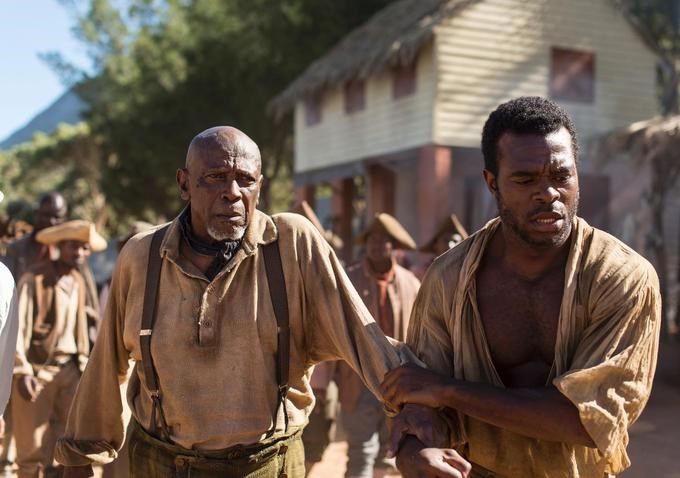ItтАЩs a remarkable chunk of Canadian history that went widely unnoticed until the publication of Ontario author Lawrence HillтАЩs The Book of Negroes in 2007. The book refers to a historical ledger of more than 3,000 names of black loyalists who fought for the British during the Revolutionary war.
They fought on the losing side but the former slaves found freedom nonetheless, having been promised emancipation in return for a yearтАЩs military service. The black soldiers fled along with the British and were evacuated to Nova Scotia. Offered passage home, more than a thousand made the perilous journey back to Sierra Leone. The rest started the first black communities in Canada.
HillтАЩs book has been made into a six-part mini-series that airs Jan. 7 on CBC (followed by a U.S. run on BET in February). Directed by TorontoтАЩs Clement Virgo (The Wire), the series features Aunjanue Ellis as Aminata, the novelтАЩs heroine and eventual ledger-writer; Lyriq Bent plays Chekura, her husband. Cuba Gooding Jr. and Louis Gossett Jr. also star.
Jamaican-born Bent never imagined being an actor while growing up in TorontoтАЩs rough Jane-and-Finch neighbourhood. It took a job selling long-distance services door to door during in college to prod Bent тАФ тАЬnot really a people personтАЭ тАФ out of his comfort zone. тАЬI thought I was going to deal with a lot of racism and I had no idea how to act in that situation,тАЭ he says, тАЬbut that never really happened.тАЭ The fact that тАЬeven little old white ladiesтАЭ were giving him positive feedback resonated with Bent, giving him much-needed confidence.
A co-worker introduced him to an acting coach. While working on his first student film, Bent ran into Virgo in a bar in Toronto, drinking with filmmaker Bruce McDonald (Highway 61, Hard Core Logo). The young actor had studied pictures of the directors тАЬso if I ran into them IтАЩd know who they were and could introduce myself.тАЭ (Bruce was talkative, Bent says, Virgo less so.)
A career including a lot of roles playing police officers followed (Saw II, III and IV, the TV series Rookie Blue) including an upcoming starring role alongside Nicolas Cage in Pay the Ghost.
But Book of Negroes is his dream project. Bent shot a full day with Oscar-winner Cuba Gooding Jr. before it sank in: тАЬI didnтАЩt even realize until I got home and began to unwind, I started to get a little bit wigged out,тАЭ he says. Bent couldnтАЩt even remember the day: he just hoped it had gone well. Gooding Jr., he says, was nothing but supportive and Emmy- and Oscar-winning actor Louis Gossett Jr. took great care and time to talk to him about his career and his future. тАЬHe was incredibly givingтАж It did not fall on deaf ears, I promise you.тАЭ
All the negativity Bent has encountered in his years in the business was тАЬwiped outтАЭ by the four months he spent shooting in South Africa, which he calls тАЬa spiritual awakening.тАЭ It was Gossett Jr. on his last day of shooting who noted the significance of white and black South Africans, Canadians, Americans and people from other African nations working together on a movie about the slave trade in a nation only 20 years removed from Apartheid. тАЬYou could hear a pin drop,тАЭ says Bent.
But it wasnтАЩt just the role of a lifetime, says Bent, it was an education. While the actor had scant knowledge about CanadaтАЩs role in the slave trade, his American co-stars had none. тАЬI think Americans were delighted and gob-smacked that Canada had such a pivotal part in history, and a hundred years before the underground railroad.тАЭ
Bent encountered racism in Canada тАФ тАЬI just thought it was my thick accent. It wasnтАЩt until I became older that I understood things were going to be different for me, that IтАЩd have to work extra hard and extra smart,тАЭ тАФ but says Canada and the U.S. are night and day when it comes to owning up to history. Americans are constantly trying to make white Americans embrace the fact that it happened, but тАЬthat mental slavery is still there.тАЭ
Canada, he says, is not afraid to shine a light on its past. тАЬThis is the part we played, letтАЩs learn from it and move on. ItтАЩs what you do with those wrongs that determines what kind of country you are.тАЭ
The Book of Negroes isnтАЩt any more relevant today in the wake of Ferguson and recent police shootings than it would have been 20 years ago, he says. тАЬLetтАЩs ask the question 50 years from now and see if thereтАЩs any change.тАЭ
Bent is thrilled that the book is being re-released in the U.S. (where it was known as Someone Knows My Name) under its original title, with educational outreach to both Canadian and American schools and colleges in the works. Plus, BentтАЩs photo is on the cover. тАЬItтАЩs better than having my own action figure!тАЭ
He adds, тАЬIt doesnтАЩt get any better for me right now,тАЭ says Bent. тАЬ2015, if you can beat that, bring it.тАЭ



